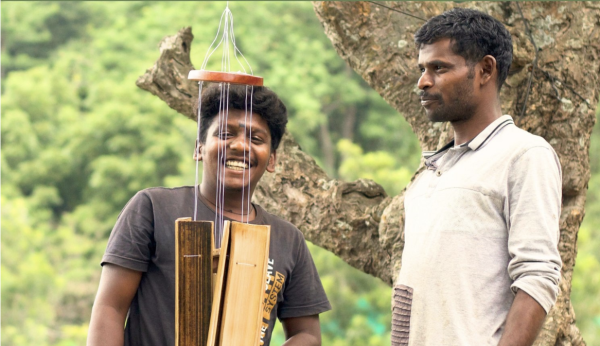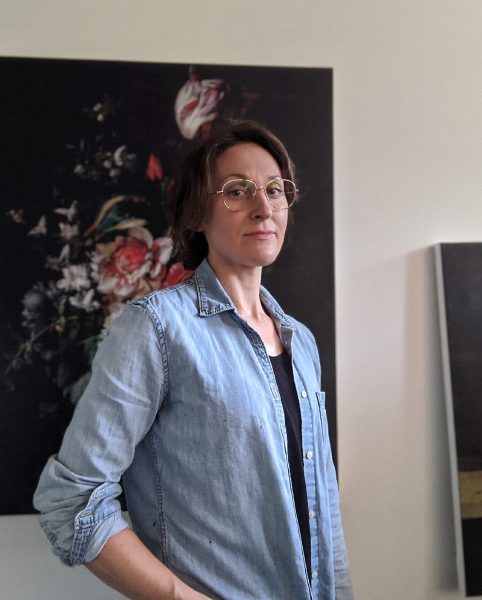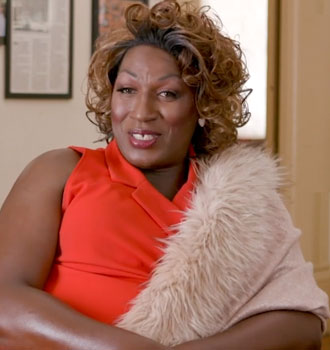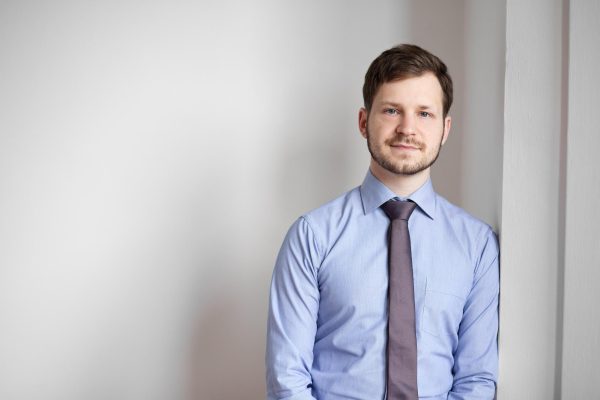Behind the Scenes of OMTA’s Original Production, Portal
College second years Lila Iyengar Lehman, Charley Schmidt, and Jaka Jacklin separately shared their experiences working in tech for show Portal. the show is co-directed by College second-year Abigail Nordan and College third-year Becca Dulaney, and runs from Nov. 5 and 6. The Portal cast and crew were informed that they would not have access to the space they originally thought they would perform in only a few weeks before they opened. Lehman, who is on lights, Schmidt, who designed the set, and Jacklin, who is managing sound, each faced individual struggles when reworking their original plans. Behind the scenes for lights, sound, and set is arewarding and enriching but strenuous process, and they are all happy with the final product of the show.
These interviews have been edited for length and clarity.
How has the change in setting been for you as the lights designer?
Lila Iyengar Lehman: It’s definitely been stressful for me, especially because I’m pretty new at lighting design. Last year, in the fall semester, I worked on the production of Dance of Hands. I wanted to be assistant stage manager, but they needed a lighting designer and I thought, “I guess I can learn how to do lights.” The second show I did was The Theory of Relativity last year in Wilder Main Space. Because it was in Wilder, I felt like, “Okay, I know how it works, I can totally design lights for Portal.” So when we had to change locations, it was very freaky for me. This transition not only required moving all the lights, but learning about a lot of new equipment that I never had to deal with before. The actual lighting design itself wasn’t that difficult, it was more about if the design could be done with fewer lights, because we didn’t have access to as many. We have these three big trusses, which are like 10-foot-tall tripods, and each of them can hold four lights. We had to limit ourselves and how many lights we used because I could have had 24 or 25 at Wilder; that was my plan. So I just had to rework the plot a little, which wasn’t that difficult. The difficult part was trying to work with fewer lights.
Has this abrupt change been a learning experience for you in any way?
LIL: Honestly, it’s been good in a lot of ways. The Oberlin Musical Theater Association got people to help me throughout the process. Double-degree second-years Nelson Gutsch and Andrew McCracken both work in the lighting shop. On the actual moving day, they had to show me how everything worked with the trusses and the installation. It was the kind of thing where having someone who understood a little better than me to answer any questions I had was really good. When all this was thrown at me, I just wanted a month or two of practice and experience with the equipment before I had to put it into action immediately. I’m sure there are some things that could have been more thoroughly done if I’d had more experience with the equipment. It’s been stressful for me, but it’s also been a big learning experience. I’ve learned a lot of specifics about how to plug everything in, all the different cable connections, how everything’s wired, and how it all has to be set up. We also got eight new LED light fixtures. I’ve learned a lot, but right now, at this very moment in the middle of production week, I have a hard time seeing that as a silver lining, because I’m so overwhelmed.
How have the cast and crew dealt with this together?
LIL: The community is so lovely. I haven’t gotten a ton of time to get to know all the actors, but they’re all incredible people. At first we didn’t know if we’d even have a show, because we were told Wilder wasn’t available and they were trying to find us a new space. Everything was really up in the air for a couple of days, and we had to inform the cast of that. When we told them, they were all so supportive. No one had any thought of giving up, which was really motivating for us. Everyone totally stuck with it throughout the whole process. It is disheartening when tons of things go wrong, and we all definitely felt that, especially in these last couple of days of tech rehearsals. However, everyone’s been super, super supportive of one another. I think that’s the thing that really allows a show to survive and make it through — the people involved. Every theater performance is about the unique group of people who are putting it on.
What does your job as set designer entail?
Charley Schmidt: Interestingly enough — and probably an issue on my part — when I first signed up for this, I thought my job as set designer was just to design the set. It turns out the designer for any specific aspect of tech also manages the process. So, I designed the set, I made the budget, purchased the materials, built the set, and moved it into Langston Hall.
How did you physically manage the new space?
CS: We took the piano out of the room and we put all of the chairs on one side. In Wilder, you have a lot more space, and the way we were oriented, it was a much longer space and not nearly as wide. The hardest part was probably the windows. They’re such gorgeous, nice, enormous windows, and that’s not really a problem for me, it’s much more of a lights problem — it does interfere with the theater lighting.
The directors already had an idea of what they wanted the set to look like. So I was looking at the drawing, and from that I just needed to make it work within the space. I wanted to use what we had in storage to keep the budget low. For that reason, I looked at what we had and what we could use. Then I figured out how I would take those things to make the most realistic version of what the director wanted. It’s very much a collaborative process, so you have to really be in touch with the other people in the project.
What has the change in venue been like for sound?
Jaka Jacklin: From a technical standpoint, the change between venues has been all right for sound. The majority of my job was recording lines and creating sound effects. For the sound effects side, that was easy. I just needed to take the audio files and my computer from one location to another, no change required. However, for the lines of one particular, that one was a little bit different. The lines and the recordings themselves were tailored to the venue; we were going to make it feel like there was someone speaking on stage who wasn’t really there. Because we changed stages, that obviously meant that the effect was ruined. The week before tech week was a scramble for me and the voice actor for GLaDOS. The hardest challenge was just making sure we got to record all the lines in time, because the change in venues really did throw a wrench into that plan. We had about a third of the entire show’s lines recorded and suited for our original venue when the directors told me what happened. Aside from that, nothing else was hard. It was definitely a hassle, but in the end, I think I created something that at least sound-wise I can definitely be proud of. Location doesn’t matter when we’re doing the show itself.










